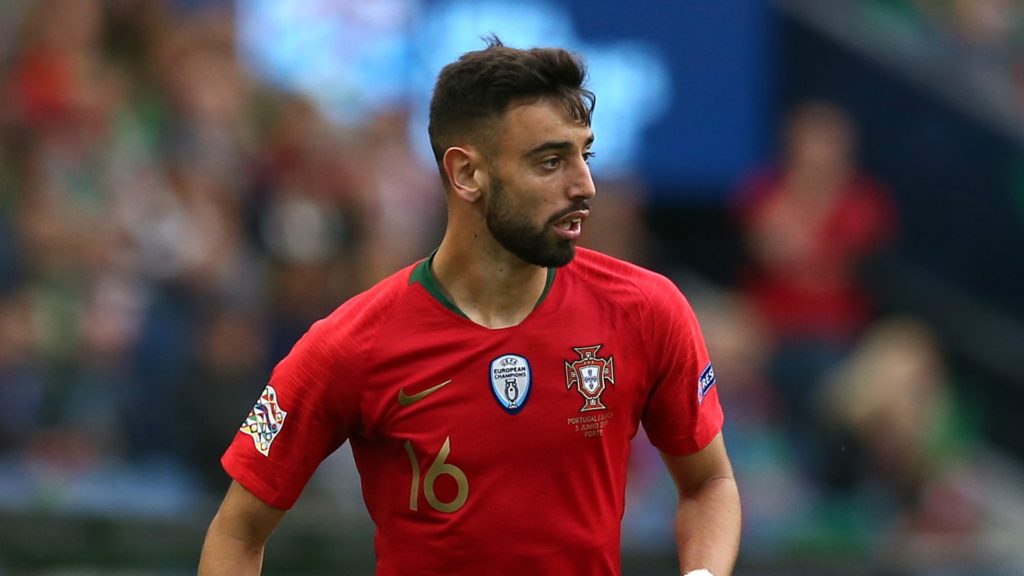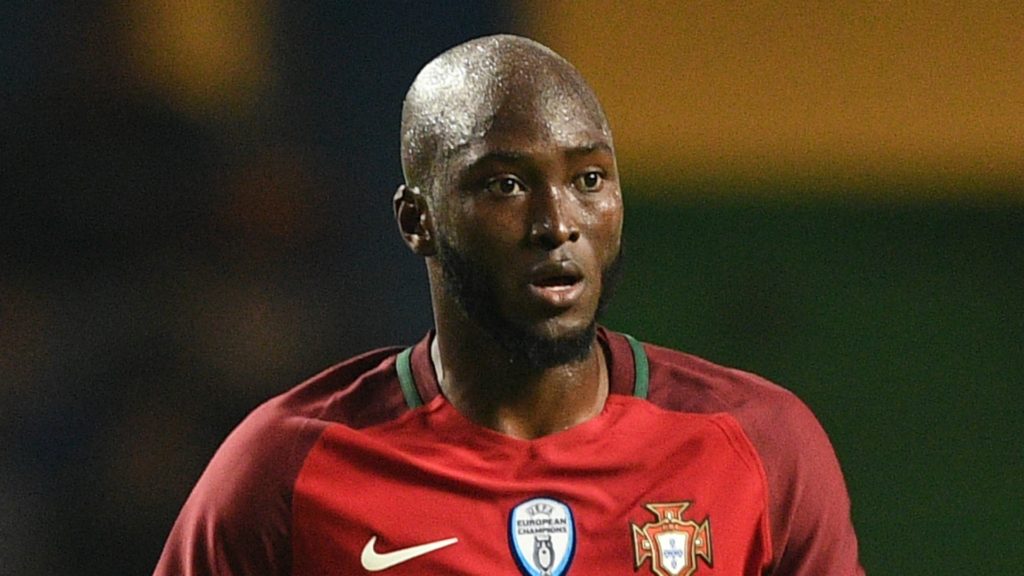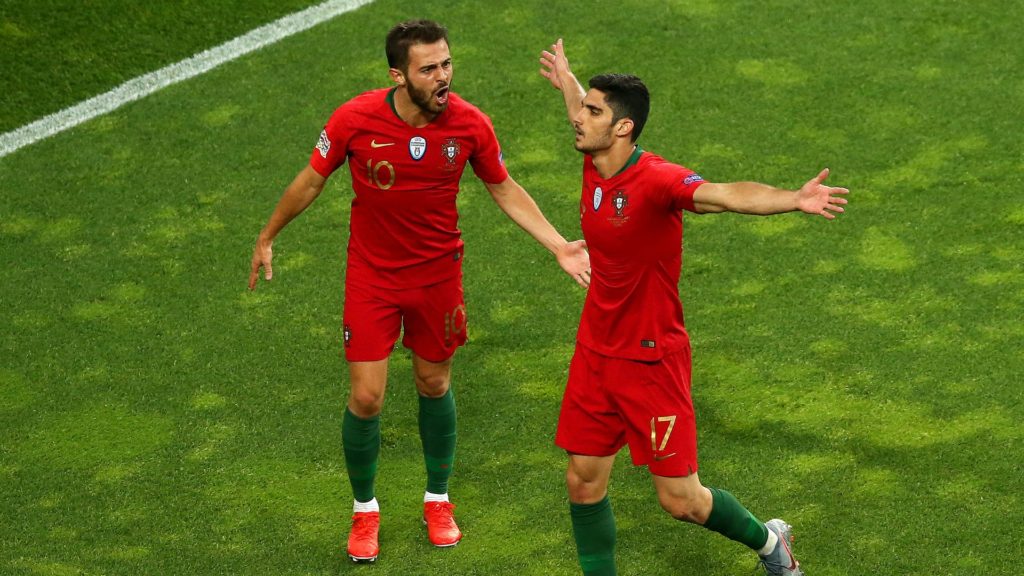Whether it is succeeding at top international level, or providing the football stage with some of the most celebrated footballers, without a shred of doubt, few nations have achieved the success of Portuguese football. The breathing ground, experiment center and cradle for all current and superstars of Portuguese football is Primeira Liga. And now, with the use of FootballCoin fans, the numerous fans of Liga NOS can create their ultimate squad in this fantasy football game.
FootballCoin currently hosts the majority of the football world’s biggest leagues. Famous institutions such as the Premier League, La Liga or Serie A are part of the game’s makeup. Exciting new competitions such as the MLS or the Chinese Super League help give the game color. And, the Portuguese Primeira Liga keeps the game grounded, with its well known and well respected squads of players.
Clubs such as FC Porto, Benfica or Sporting CP have come to define the school of Portuguese football. These clubs have dominated much of the first tier of football’s history. They have also left an indelible impression on international football, frequently reaching the last phases of competitions such as the Champions League and Europa League, even winning them in the past. For FootballCoin there was no doubt about the need to include Primeira Liga among its ranks.
Currently the Big Three teams of Portuguese football,a s well as all the other members of the Primeira Liga are registered to the FootballCoin platform. This means that all the teams as well as every squad member can be chosen by fantasy football enthusiasts for their drafts. But, before we get into the specifics of how to play FootballCoin, let’s take a look at how Portuguese football has evolved.
A brief history of the Portuguese Primeira Liga
Similarly to the majority of its European counterparts, the first tier of Portuguese football did not begin under the name it holds today. The competition was founded back in 1934, one of the oldest such competitions in Europe. It was first called Campeonato da Liga da Primeira Divisão. It was then renamed as Campeonato Nacional da Primeira Divisão until 1999. Since then it has been known as Primeira Liga. In recent years it has been known as Liga NOS for sponsorship reasons.
It also interesting to note the format of the competition. Initially, in the age of experimentation of the mid 1930’s, a knockout format was preferred. By 1938 it had been replaced by a round-robin system. Currently teams play each other home and away with a final table drawn once every single game has been played. The team that has earned the highest number of points is crowned as the top team in Portugal.
The top tier began with a lower number then in the present day. Only eight teams took part in the inaugural edition. by 1940, two more teams had been added to the competition. As Portuguese football began to grow and more clubs began planning seriously for a long term future, the league was expanded to include a higher number of clubs. Currently, 18 teams take part in Liga NOS every season. The last two teams in the league are relegated to the second tier.
Portuguese football in the Champions League and beyond
As of 2019, the team that finishes top of the Primeira Liga at the end of a season is granted automatic access to the groups of the prestigious Champions League. The runners-up are able to participate in the qualification stages of the UCL. The teams that finish in the 3rd and 4th positions are granted access to the knockout rounds of the Europa League.
Portuguese clubs have been a contact fixture into international competitions. Although the names of those competitions may have changed through the years, it is interesting to remember these club’s overall success.
FC Porto is the team that has represented Portuguese football most often in the Champions Cup (currently the Champions League) having taken part in 19 different editions. Porto have won the Champions league and finished as runners-up on another occasion, the only Portuguese team to manage this.
Benfica is the second most successful Portuguese team in the UCL, having qualified 11 separate times. Sporting CP managed to play in the esteemed competition on 8 separate occasions.
Besides this, FC Porto has also managed to win the Europa League competition in 2011 and Benfica and Sporting have made the semi-final stage. Prior to this, when the competition was named the UEFA Cup, Porto managed to win it 2003, while Sporting was successful in 2003.
Clearly, the Portuguese clubs have been extremely successful in international competitions. In fact few countries have generated the level of excitement that Portuguese teams playing abroad have.
The big three of Portuguese football
Every important European league has a number of teams that have come to dominate the competition through the ages. Those are the clubs most often associated with the competition. However, in most of these the clubs that have been in charge have tended to change through the years. Or, these clubs have needed a number of years before they could aspire to becoming the nation’s top club.
Portugal is somewhat different in this respect. As mentioned above, three clubs have dominated the Primeira Liga ever since the very first editions of the top tier of Portuguese football.
These clubs are FC Porto, Sporting CP and Benfica. Of these, Benfica has been the most successful in domestic competitions, winning top honors on 37 occasions. FC Porto have won it 28 times and Sporting have won the competition on 18 occasions.
Only two other clubs have won the Primeira Liga, each on one occasion. Belenenses won it back in 1946. Boavista have won it more recently in 2011. Clearly the Big Three have a hold on Liga NOS still.
While first tier of Portuguese football has been dominated by these three clubs since its very beginnings, numerous other clubs help create a highly competitively charged atmosphere. Furthermore, players with incredible potential are developed by youth academies across the country.
How is Liga NOS integrated within the FootballCoin game?
Liga NOS is seamlessly made part of the FootballCoin universe. Although the game can be approached in a variety of ways, the most common one is by taking the reins of your very own fantasy football team.
It is here where virtual managers are encouraged to pick their ultimate team draft and create the strategy that will help them win against their opponents. All participants to the FootballCoin game are offered the same set of rules.
The 18 teams that make up a season of Liga NOS are included in FootballCoin. The likeness of the players, the symbols depicting the clubs and the league etc. are licensed by the game so that they can be used by its users to create a virtual football league.
Participants to the daily fantasy sports contests are able to choose any of the squad members of Portuguese clubs. The teams in question need to have their upcoming match featured among the list of the matches featured in the contest. The user will then be able to fill out every position of their squad with players from the respective clubs.
A daily fantasy game with collectible items
Naturally, a balanced approach is essential in creating a game that can advance through the years. It is also important to create an environment that can adapt to the desires of the community.
In keeping with these principles, FootballCoin is a game based around collectible items registered in the game as digital assets issued on FootballCoin’s own blockchain. Player and stadium cards were issued, in a limit amount upon the game’s release. These cards signify the ownership of it and the possibility to use it inside of the game.
Certainly, the majority of the cards in the game are free to use by all managers. These are not cards issued on the blockchain. In the future, there are plans to include some of these cards as part of a reward system that will help boost interest for the game and help it be more entertaining.
The collectible cards, however, are a minority. The ones that own them may use them once per contest. These, normally, represent the elite players from the leagues designated by FootballCoin. Since the cards were issued in a limited amount, only a select few can use them in contests, giving owners a possible advantage over their rivals.
The importance of collectible items in gaming
Building a collection, whatever the nature of it, speaks to our human nature. In terms of fandom, the collection is proof of a person’s love for a certain thing. Merchandise depicting team crests, players’ shirts etc. have been a part of the football landscape since the very beginning of the game.
FootballCoin aims to speak the same language as that of the regular football fan. The cards are part of a potential collection. On the other hand, these cards, offer value in the game. It is a value that will never disappear, but may oscillate based on the natural state of the footballing world. For example, a card depicting Cristiano Ronaldo or Lionel Messi may climb in price and appeal, based on the players’ performances. These are things that occur naturally, within the FootballCoin microcosm, and are shaped by the behavior of the users, not the developers.
Finally, a player or stadium card may always be used in the game. Age eventually has players retiring. In certain cases, players transfer to clubs outside of the, currently 11, football leagues hosted by FootballCoin. However, these players may always be used in the Assistant Manager role. By doing this, they will automatically receive points based on their initial player ranking. This ranking will never be demoted in the game and the cards will always be welcomed on the FootballCoin market.
Digital assets, daily fantasy sports and Primeira Liga
As mentioned earlier, balance was essential in the development of FootballCoin. Liga NOS has been one of the priorities of the game and also one of the most entertaining competitions to be included in FootballCoin.
In giving users numerous options on how to play the game, on of the things established was that certain leagues would include mostly free players, while others may have more players represented by collectible cards. Liga NOS was chosen as one of the leagues with free players. For the moment, the collectible cards represent players that have been transferred from leagues with a different status.
Also, the game was divided into Easy and Pro, two modes separated by the number of statistical variables taken into account when calculating a player’s total number of points. The Portuguese league is normally included on the Easy scoring system.
This helps differentiate the leagues included in the game. FootballCoin is determined to develop the most complete of all daily fantasy sports games. This is why the best leagues in the world have been included in the game. The team is also determined to monitor the development of international football and, warranted, include other football leagues.
Portuguese teams in fantasy Champions League and Europa League
Portugal’s clubs, the Big Three, especially, have achieved remarkable things in European competitions. While their past success is worthy of praise, so is the fact that in an ever changing game, these clubs maintain a strong influence on the Champions League and Europa League. The two international competitions are made part of FootballCoin.
Being that that fantasy UCL and UEL contests are set up in FootballCoin to accommodate each matchweek in the competitions, it is likely that Liga NOS supporters will be able to choose their favorite players in two type of contests. The squads of the Portuguese teams representing the nation in international competitions, will be made available for selection there, as well as in Primeira Liga.
The same goes for all other teams included in FootballCoin. This scenario becomes especially interesting when considering the collectible cards, particularly those of some of the most famous players in the game of football. Owning a card of Mohamed Salah, Edin Dzeko, Antoine Griezmann, allows you to use them both in their domestic leagues, as well as when their teams play in international competitions. The only rule to follow is that one card can be used once per contest.
Collectible stadium cards and setting up contests for free
FootballCoin is a game of skill and knowledge. But, perhaps selecting players with the purpose of building your ultimate squad is not a users forte. Another way in which the game can be approached, for profit, is be creating a contest. Naturally, the organizer can also join the contest if they wish to. All other aspects of it, the matches included, the entry fee, the stadium hosting it etc. are customizable by the organizer.
When speaking of the stadium hosting the event it’s important to go back to the game rules. Stadiums, just like players, are divided within the categories, free cards and collectible cards. The free stadiums can be used by any of the game’s users. They can hold a maximum of 11 participants and contests organized with them follow the exact same rules as all other stadiums. Organizers are entitled to a percentage of the entire prize pool collected for the contest.
But, just players receive their ratings, so do the stadiums. Stadiums with a higher rating hold a higher number of participants. These stadiums also entitle the contest organizer to a higher percentage of the overall prize pool. While collectible stadium cards have a higher value expressed in XFC coin, they represent an investment. A user can simply organize contests, promote them so that a high number of managers wish to join the event, and, at the end of the event, collect their winnings or having organized the contest. To purchase a stadium one needs XFC cryptocurrency. Let’s see how this works.
The XFC cryptocurrency
Based largely on the philosophy behind the Bitcoin project, XFC is the official cryptocurrency in FootballCoin and the game’s lifeblood. All activities in the game are sorted through the use of this coin. It is, as the same time, a reward for the managers that perform well, a way to purchase assets in the game, a coin that can be traded on any cryptucurrency exchange that includes FootballCoin etc.
The XFC coin is meant to circulate freely through the game, without the interference of the game developers. XFC has been offered, ever since the game started, as a reward to top participants in FootballCoin contests. Many of them have chosen to reuse the XFC amount to improve their strategy. This means purchasing players cards that are helpful in assembling a winning team, buying stadium cards that help them create larger contests etc.
To cryptocurrency enthusiasts, XFC is especially important because of the philosophy it is based around and for the fact that it proves how crypto technology can be used in various aspects of everyday life. XFC is as much a proof concept as it is a useful tool.
The FootbalCoin market for player and stadium cards
While the majority of payers from Primeira Liga are free, the game’s vibrant market is one of the engines of the game. All the of the collectible cards previously mentioned, be them players or stadium, are placed on the game market and users are encouraged to trade them and create their own market.
The cards are issued in a limited amount. The supply of cards itself that is allowed on the market is decided in such a way so that it is proportional with the number of users active in the game. This, naturally, is designed to increase the desirability for purchasing a certain. In another sense, it is also designed to reward those that own that own the card, offering them a better chance in the contests they choose to participate in.
For the time being, the market includes offers and requests. The offers are set by users who already own the card in question. FootballCoin will make sure to include a general offer, one that remains stable. The other users can opt to sell the card over or below the value decided by FootballCoin. When all of the cards that are on the market have already been sold, FootballCoin will have no more cards to sell. In this case, the market will be determined exclusively by users.
The Requests setting refers to users that do no own the card, but wish to purchase it. Here, they can list the price they wish to offer for it. A user that wishes to sell and that is happy with the offer may match the offer in question and allow the transaction.
Private and public fantasy Primeira Liga contests
As discussed before, FootballCoin offers a myriad of options of how to approach the game. One of the things that needs to be decided by virtual managers is whether to take part in public events or in private contests.
Public contests are those that have been organized by FootballCoin since the beginning of the game. In the majority of cases, these events are free to play or include a small entry sum. They usually represent one league, such as Liga Nos, and have games from a single Matchweek of the competition included.
The private contests, on the other hand, can be created by any user, for fun and profit. In this case, the contest organizer is the one responsible with customizing all aspects of the contest. They may choose the game, decide on which leagues to be featured, decide on the prize structure or the entry fee.
These type of contests can also be profitable for the person choosing to organize them. For one thing, the organizer receives a percentage of the prize pool that has been collected. The higher the number of participants and the better promoted, the more of a reward the organizer is due. The number of participants is determined the ranking of the stadium cards. The higher ranked stadiums include a larger number of participants. For example, a 5* stadium does not have a restriction in terms of the number of participants.
Free stadiums are also included in the game. Anyone registered to FootballCoin may use for the purpose of organizing an event. These cards will hold up to 11 participants for one single event.
Fantasy Primeira Liga and FootballCoin in the future
As we speak, FootballCoin is in its third year of existence. These three years have included a number of milestones. Since its very beginning the team has focused on delivering a fully functional product. But, besides this, they have also focused on constantly improving the product. In this regard, few things have changed.
The FootballCoin team is currently testing what will be the third iteration of the game, one that brings considerable updates and improvements. Some of the aspects that will receive a considerable boost include the graphics, the player market, the reward system etc. These changes are being verified thoroughly to ensure the game works properly in all aspects.
Primeira Liga will, naturally, be made part of the fantasy football world presented by FootballCoin. All of the players available in the squads taking part in the competition will continue to be included in the game. Squad changes that occur throughout a campaign will instantly be applied to the game of FootballCoin. And, the team will continue to promote it to the best of their abilities.
As for the league itself, if its history serves as any indicator, Portuguese teams will continue to thrive, creating top class talents that will represent them abroad or in the nation’s top footballing competition. From Eusebio, to Luis Figo, Cristiano Ronaldo or Joao Felix, Portuguese football has never been short on superstars. Truly, few countries can boast at glimpsing at a brighter future for the state of their football.
Besides this, FootballCoin remains geared towards continuing to prove itself as one of the most forward thinking and reliable projects in the world of blockchain technology and cryptocurrency. Bridging the gap between fantasy sports and crypto, serving as a model for the mass adoption of blockchain technology, creating the best fantasy football game on the market, are all priorities for the FootballCoin team.



